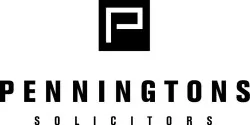Social networking websites: they are rarely out of the headlines, courting both celebration and controversy. One such site is Facebook. With 40 million registered users worldwide, it has attracted the attentions of businesses and for good reason: these sites offer a seductive cocktail of market research, advertising, branding and PR, delivered in one manageable "profile". Unsurprisingly, this raises a host of legal issues.
Privacy
To open accounts, Facebook users must provide personal data such as name, date of birth and sex, and agree to the Terms of Use and Privacy Policy. Further optional personal information can be uploaded and shared with their "friends" on Facebook. Users can change their privacy settings to limit the amount of information others (even friends) can see.
The Facebook Privacy Policy has two core principles: that users should have control over their personal information and that users should have access to the information others want to share. Despite being designed to help users make informed decisions, the Privacy Policy and privacy settings are quite complex. Users may, therefore, be alarmed to discover that information they supply is not as extensively protected as they may have thought.
For example, the default privacy setting for Facebook allows information to be seen by others in your "network". The London "network" alone contains over 2 million people, who may therefore have more visibility over a user's profile than the user originally anticipated.
Also, Facebook is entitled to provide information about your choices (such as your favourite film) to third parties without identifying you as an individual. Facebook can also "supplement" user profiles with information gleaned from 3rd party sources (e.g. newspapers, blogs etc). This facilitates direct marketing to users, with the onus on the user to then navigate the privacy policy to specifically opt-out.
The Information Commissioner's Office (ICO) is reportedly in discussions with Facebook, regarding its retention of user data after a user has deactivated an account. The ICO voiced concern that the laborious task of ensuring complete removal of personal data rests with the user. Although there is no suggestion that Facebook has breached data protection laws, the ICO's may require it to clarify its privacy policy.
Marketing
Facebook offers a range of promotional tools to facilitate the creation of a business presence to engage with customers.
"Beacon" is perhaps the most controversial. This, enables businesses to implant code into their own websites to then trigger automatic alerts in a user's Facebook news feed (and hence their friends' news feeds) when the user interacts with the business website in certain ways, such as purchasing a product. This has obvious attractions to a business seeking to build customer brand-loyalty and recognition. However, its introduction was met with widespread complaints that users could not explicitly state what information they did not want to share or choose not to share at all.
To its credit, after consultation and feedback, Facebook adopted a user "opt-in" solution. With offerings of this nature, many businesses recognise that Facebook provides a platform for free and highly effective viral distribution.
Despite the spiel, some businesses have been reticent to embrace the Facebook phenomenon as the amount of genuine control that it can exercise over content that is posted is limited. Hearsay poses a genuine threat to corporate image but it can also create good-will at no cost to the business.
In The Workplace
Although prohibition of Facebook in the workplace may reduce wasted hours and the risk of employees posting undesirable comments, it could engender a "big-brother" culture of distrust in the workplace which, in turn, may harm the business' reputation. The Trade Union Council has encouraged employers to allow use of sites like Facebook in the workplace, albeit with caution and clear guidelines as to how these sites should be used.
Intellectual Property Issues
Sites such as Facebook run a high risk of intellectual property infringement, primarily when hosting or facilitating access to third party content. This was illustrated recently when the makers of the famous board game "Scrabble" asked Facebook to remove the hugely popular "Scrabulous" application, claiming the application infringed their copyright.
Despite clear contractual terms that Facebook will not tolerate infringing applications, Scrabulous remains active at the time of writing this article. However, its future is uncertain. No doubt this case will serve as a caution to other developers to be careful in respecting third party intellectual property rights.
Facebook Or No Facebook?
Despite the minefields of privacy and intellectual property issues that Facebook and its competitors create, their popularity continues to increase. Current thinking is that businesses should embrace this global phenomenon though the consensus appears to be: approach with caution.
The content of this article is intended to provide a general guide to the subject matter. Specialist advice should be sought about your specific circumstances.


